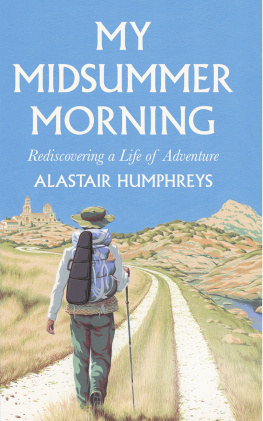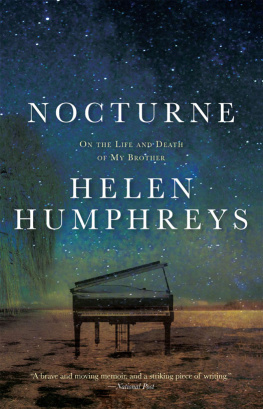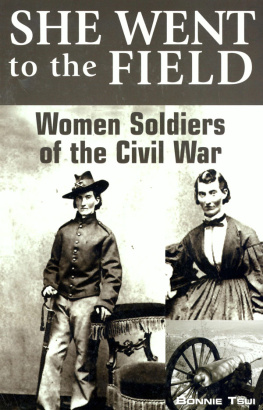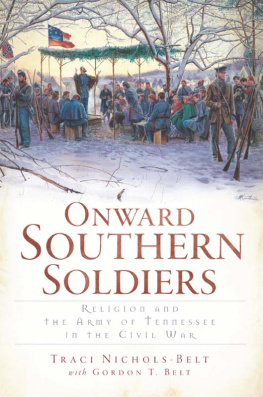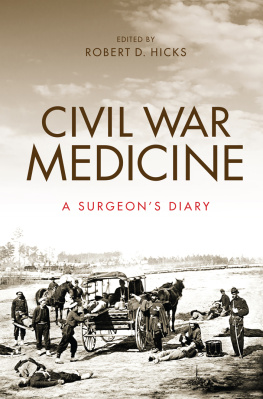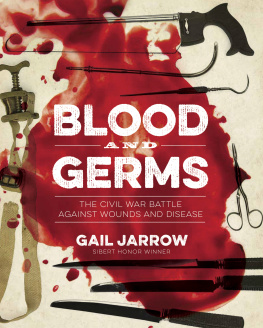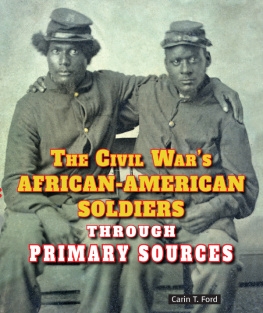Marrow of Tragedy
Marrow of Tragedy
The Health Crisis of the American Civil War
Margaret Humphreys

2013 The Johns Hopkins University Press
All rights reserved. Published 2013
Printed in the United States of America on acid-free paper
2 4 6 8 9 7 5 3 1
The Johns Hopkins University Press
2715 North Charles Street
Baltimore, Maryland 21218-4363
www.press.jhu.edu
Library of Congress Cataloging-in-Publication Data
Humphreys, Margaret, 1955
Marrow of tragedy : the health crisis of the American Civil War /
Margaret Humphreys.
pages cm
Includes bibliographical references and index.
ISBN 978-1-4214-0999-3 (hardcover : alk. paper) ISBN 978-1-4214
1000-5 (electronic) ISBN 1-4214-0999-2 (hardcover : alk. paper)
ISBN 1-4214-1000-1 (electronic)
1. United StatesHistoryCivil War, 18611865Medical
care. 2. United StatesHistoryCivil War, 18611865
Casualties. 3. Medicine, MilitaryUnited StatesHistory19th
century. 4. Public healthUnited StatesHistory19th
century. I. Title.
E621.H86 2013
973.775dc23 2012044604
A catalog record for this book is available from the British Library.
Special discounts are available for bulk purchases of this book.
For more information, please contact Special Sales at 410-516-6936 or
specialsales@press.jhu.edu.
The Johns Hopkins University Press uses environmentally friendly book
materials, including recycled text paper that is composed of at least 30
percent post-consumer waste, whenever possible.
For
Will and Ted
And in memory of
William D. Humphreys (1836186?), Fifth Tennessee Infantry
Hugh Donnelly (18281868), Eighth Minnesota Infantry
CONTENTS
ILLUSTRATIONS
ACKNOWLEDGMENTS
To properly thank all of those who have contributed to this book, Id have to begin with the Brownie Scout leaders who took me to Fort Donelson in the second grade and continue from there. Raised in the South by a mother from Minnesota, I have long realized that the war was the key event in American history and that sooner or later I would have to engage it professionally. This effort formally began in 1997, when I little thought that it would consume me for the next fifteen years of my professional life.
In the words used long ago by television advertisers, this work is brought to you by many sponsors. First and foremost is the support of Mary Duke Biddle Trent Semans (19202012), the Trent Family, the Trent Foundation, and their donations to Duke University, which allowed me the luxury of an academic position as a base for all of my scholarly endeavors. The Trent Foundation funded my chair in the history of medicine, and research funds from that chair have in turn directly supported my research (and enabled me to hire research help). I must also thank Ross McKinney Jr., director of the Trent Center for Bioethics, Humanities, and History of Medicine for his patience in channeling funds to help get that book done.
Duke is a wonderful location from which to explore Civil War topics. Not only is the Duke Library itself rich in resources, but within a days drive are the Southern Historical Collection (at the University of North CarolinaChapel Hill), the South Carolina State Library, the Museum of the Confederacy (in Richmond), and the National Archives in Washington, D.C. Librarians at all these places have offered cheerful and very welcome support. Librarians Suzanne Porter, Rachel Ingold, and Elizabeth Dunn at Duke have been especially helpful. Duke has allowed sabbatical leave, supported the work with small grants, and supplied me with valuable colleagues who have enriched my perspectives. Im particularly grateful to Lil Fenn, Laura Edwards, Ed Balleisen, Karin Shapiro, Anna Krylova, John Martin, Thavolia Glymph, Peter Wood, Adriane Lentz-Smith, Nancy McLean, Sally Deutsch, Sy Mauskopf, Tom Robisheaux, Peter English, Jeff Baker, and Anne Firor Scott for conversations and encouragement. And even though Duke freshpersons are routinely given shirts saying Go to Hell Carolina at orientation, I want to thank my colleagues at the University of North CarolinaChapel Hill, including Michael McVaugh, Wayne Lee, Joseph Glatthaar, and Dick Kohn, for their enlightenment and support over the years. Susanna Lee at North Carolina State rounds out the roster of my academic village. Thanks to you all.
I had the luxury of two years at the National Humanities Center, years that gave me not only the gift of time but the stimulation of colleagues across the humanities, whose conceptions redirected my work in fundamental ways. My first year was supported by an American Council of Learned Societies Burkhardt Fellowship and my second by Duke sabbatical leave. I also received funding from a National Library of Medicine Publication Grant (G13-LM008350-02). This is the second book to emerge from the time supported by these research funds, and all the people thanked in the preface to the first one (Intensely Human: The Health of the Black Soldier in the American Civil War [Baltimore: Johns Hopkins University Press, 2008]) deserve equal credit here.
Historians are always thinking of their audience, and for works on Civil War medicine that audience is particularly diverse. I appreciate the support and feedback from the Society of Civil War Surgeons (Pete DOnofrio, president) and the meetings sponsored by the National Museum of Civil War Medicine (George Wunderlich, executive director), where I both met interesting colleagues engaged in public history and often learned about valuable local sources previously unknown to me. The Society of Civil War Historians brought me into the circle of professional historians interested in the Civil War. Im particularly grateful to Judy Giesberg for welcoming me into the group and introducing me to other gender historians of the war. Finally, my friends in the American Association for the History of Medicine continue to give me the strength to get up and do what needs to be done (with apologies to Powdermilk Biscuits). So thanks, as always, to Jacalyn Duffin, Nancy Tomes, Norman Gevitz, Caroline Hannaway, Gerry Grob, John Eyler, Richard Meckel, Judith Leavitt, and other friends for community over many years.
I was fortunate to have research assistants for this project. Kelly Kenning-ton, now assistant professor of history at Auburn University, worked for me during her graduate training at Duke. She managed the many mundane tasks of editing the Journal of the History of Medicine, acted as teaching assistant for my course on the history of public health in the United States (and, on one memorable snow day, as emergency babysitter), and otherwise helped lighten my workload. Marie Hicks, also a Duke history PhD, served as managing editor for the journal, assisted me in planning a new course, and ably edited this book manuscript. During this past year, Shauna Devine, a recent PhD from the University of Western Ontario, herself a scholar of Civil War medicine, assisted me in revisions while likewise doing journal and course support work. And she planned a one-day conference on the Civil War that was enlightening and fun (especially once it was all done). All of this help has been much appreciated.
I have been lucky to have Jackie Wehmueller as my editor at the Johns Hopkins University Press. My colleagues have marveled at her hand-edited pages, both for the detail and for the retro style (its much easier for me to follow penciled suggestions than to see the equivalent changes in a marked-up Word document). Jackie has been endlessly patient with me as the deadline for this books submission has been pushed back and then pushed back again. Every year at American Association for the History of Medicine meetings for quite a while now weve had a glass of wine and heartening conversation that helped keep me going. Thanks, Jackie.
Next page



